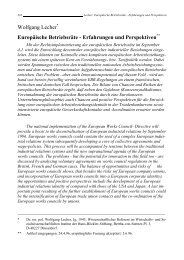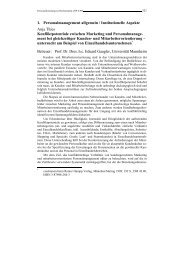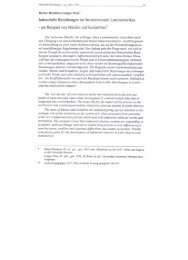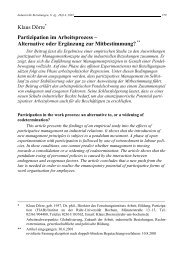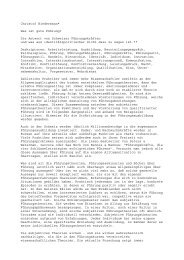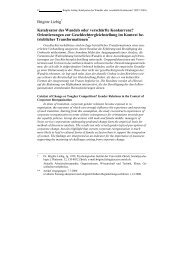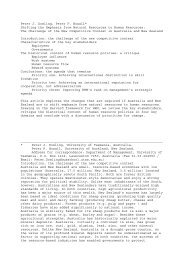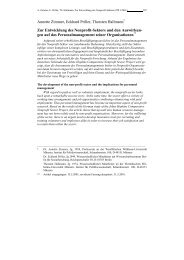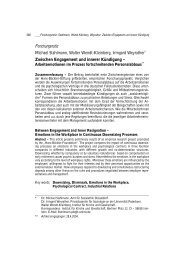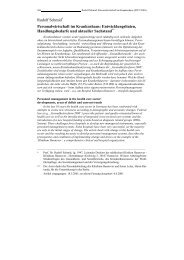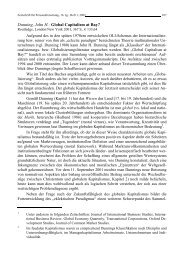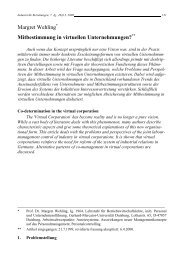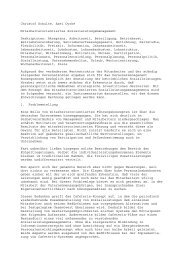JEEMS - Rainer Hampp Verlag
JEEMS - Rainer Hampp Verlag
JEEMS - Rainer Hampp Verlag
Create successful ePaper yourself
Turn your PDF publications into a flip-book with our unique Google optimized e-Paper software.
1. Introduction<br />
Danijel Pucko / Matej Lahovnik<br />
Slovenia established a democratic political system in 1990. It became a new,<br />
independent European state in 1991 when the Socialist Republic of Yugoslavia<br />
split apart. Slovenian businesses lost a relatively huge domestic market as a<br />
result of all these changes. It could be argued that the country has been in<br />
transition since 1990. Political and economic reforms have been present in the<br />
country since the time when new political parties seized power in Spring, since<br />
1990. The transition in Slovenia has been going on for six years. The<br />
privatisation process of former "social" enterprises (self-managing business<br />
firms) started to be implemented in 1994. The great majority of "social"<br />
enterprises have already been privatised.<br />
The majority of enterprises that already existed before the transition period have<br />
been forced to strategically restructure themselves because of radical changes<br />
which have taken place in their environment. In more than two thirds of the<br />
enterprises the restructuring processes are not completed yet. These processes<br />
are lead by managing directors of businesses and by top management teams.<br />
The analysis is to focus on six key issues: firstly the changes which have taken<br />
place in the positions of the managing directors of enterprises; secondly, the<br />
developments which have taken place in the value systems of managing<br />
directors and senior managers; thirdly the personal objectives of these<br />
executives, and fourthly, their objectives as employers. The values and<br />
objectives of the Slovenian managers are compared with those of Western<br />
European managers. As values and personal objectives influence enterprises'<br />
strategic objectives and the managing directors' perception of the competitive<br />
advantage's factors, we intend to identify the stated variables and offer some<br />
relevant empirical findings. As business units try to achieve their competitive<br />
advantages through the use of business strategy, business strategies of the<br />
Slovenian enterprises are presented. Finally, we asked the Slovenian managers<br />
to analyze the current situation and to predict the length of the process of<br />
strategic restructuring in Slovenian enterprises.<br />
On the one hand our research was based on the theoretical examination of the<br />
managers' position in the transformation process (Kilmann et al., 1988) and<br />
phenomenon of strategic restructuring of an enterprise (Brilmann, 1986) and on<br />
the other hand on an extensive questionnaire. Managing directors or members of<br />
the management teams of Slovenian enterprises were asked to respond to the<br />
questions in the questionnaire. The empirical research was limited to five<br />
strongest manufacturing industries (metal and metal products, electrical and<br />
optical equipment, chemical, textile and garment, and food processing) in<br />
Slovenia, which were selected according to their shares in the creation of GNP<br />
in 1990. We excluded small enterprises from our sample ( i.e. enterprises with<br />
less than 125 employees). All the enterprises included in the sample had to meet<br />
one requirement, which was, that they had been founded before 1990. New<br />
<strong>JEEMS</strong> 4/ 1997 361



